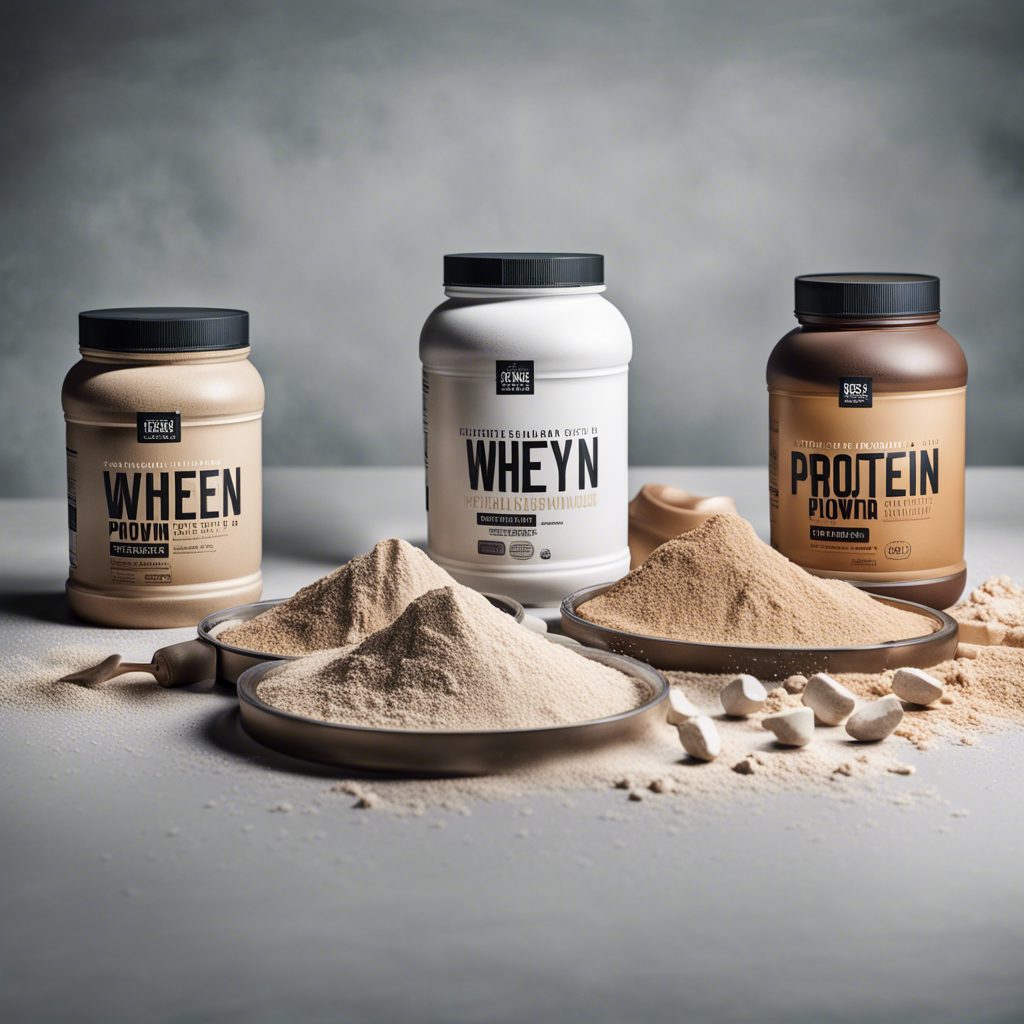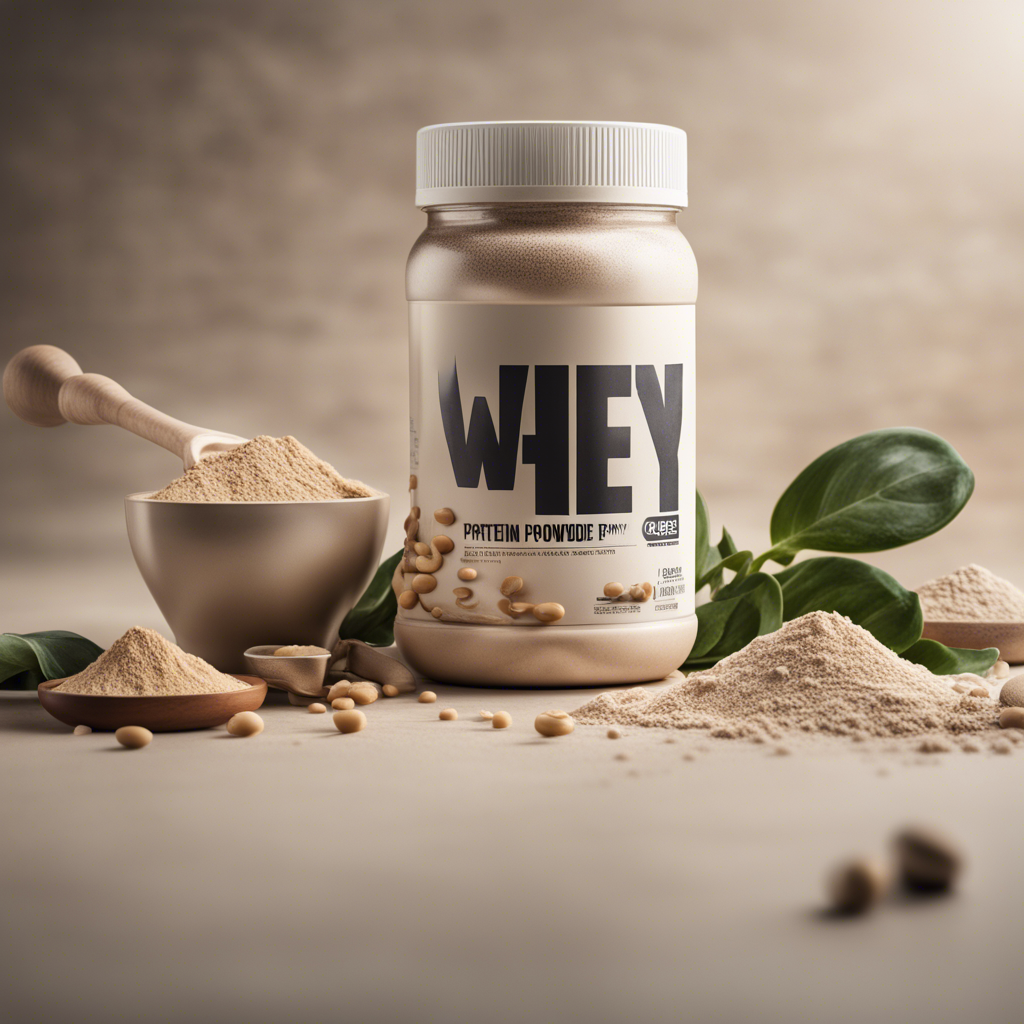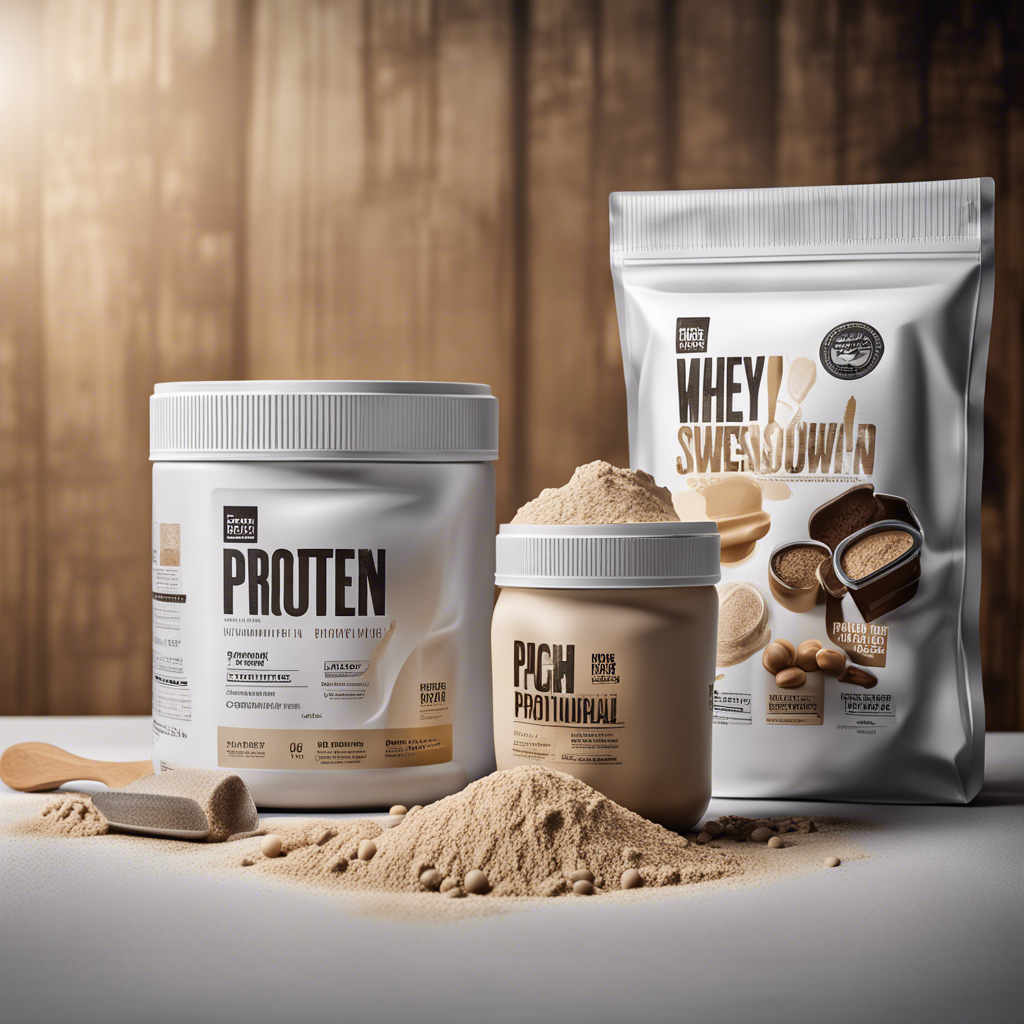Protein Powder Showdown: Whey vs. Plant-Based – Which Is Best for You?
In the world of fitness and nutrition, protein powders have become a staple for athletes, bodybuilders, and health enthusiasts alike. As the demand for safe fitness products to buy on Amazon and other platforms has grown, so has the variety of protein supplements available. Among these, whey and plant-based protein powders stand out as the leading choices, each with its unique set of benefits and considerations.

Choosing between whey and plant-based protein can be overwhelming given the plethora of options and opinions. This decision often hinges on individual dietary preferences, fitness goals, and health considerations. This article aims to provide a detailed comparison of whey vs. plant protein to help you determine the best protein for fitness, catering to both your physical and nutritional needs.
Whether you’re a seasoned athlete or just starting your fitness journey, understanding the benefits and potential downsides of each type of protein powder is crucial. By diving deep into the health effects and practical applications of these supplements, you’ll be better equipped to make an informed decision tailored to your lifestyle.
Whey Protein: The Classic Choice
Whey protein, a by-product of cheese production, is a popular choice among athletes and fitness enthusiasts due to its high biological value and rapid digestion. Known for its complete amino acid profile, whey protein is often recommended for muscle growth and recovery.
Whey Protein Benefits
The primary advantage of whey protein lies in its high levels of branched-chain amino acids (BCAAs), which are essential for muscle repair and growth. Studies have shown that whey protein can effectively enhance muscle protein synthesis, making it a preferred option for those looking to increase muscle mass.
Additionally, whey protein is linked to various other health benefits, including potential weight loss due to its satiating effect. It helps in reducing hunger, which can aid in managing calorie intake more effectively. This makes whey protein a suitable supplement for individuals aiming for weight management alongside muscle gain.
Practical Applications
For those involved in intense workout regimens, consuming whey protein immediately after exercise can maximize muscle repair. Its fast absorption rate allows for quick delivery of amino acids to muscles, which is crucial in the post-workout recovery window.
Buying safe fitness products on Amazon, including reputable brands of whey protein powder, ensures a convenient and reliable way to supplement your diet. Always check for third-party testing and customer reviews to ensure quality and safety.
Plant-Based Protein: A Growing Trend
Plant-based protein powders have surged in popularity, especially among individuals following vegan or vegetarian diets. Sourced from ingredients like peas, brown rice, hemp, and soy, these proteins offer diverse advantages, catering to those with dietary restrictions and environmental concerns.
Plant-Based Protein Advantages
One of the key benefits of plant-based proteins is their hypoallergenic nature. For people with lactose intolerance or dairy allergies, plant proteins provide a safe alternative. They are also packed with fiber and antioxidants, contributing to overall health beyond mere protein intake.
Plant proteins are often fortified with additional nutrients, such as vitamins and minerals, which may not be present in whey proteins. As a result, they can support a more wholesome nutritional profile, appealing to those seeking a well-rounded dietary supplement.
Vegan Protein Options
Emerging options such as pea and hemp protein have shown promising results in muscle building and recovery. While their amino acid profile may not be as complete as whey, when combined, they can provide a comprehensive amino acid intake comparable to that of animal-based proteins.
The environmental impact of plant-based protein production also appeals to environmentally conscious consumers. Lower resource requirements and reduced carbon footprint make these products more sustainable options, aligning with the values of those advocating for eco-friendly practices.
Protein Powder Health Effects: Weighing the Pros and Cons
Understanding the health effects of protein powders is critical as you weigh whey vs. plant protein options. While both types offer significant advantages, they can also present specific considerations that need to be addressed based on individual health conditions and goals.
Digestive Health Considerations
Whey protein, while beneficial, may cause digestive issues such as bloating and gas in those who are lactose intolerant. In contrast, plant-based proteins are generally easier to digest and less likely to cause gastrointestinal discomfort, making them suitable for individuals with sensitive stomachs.
Allergen Potential
Lactose intolerance presents a significant concern with whey protein, necessitating a cautious approach for those who are susceptible. Conversely, plant-based proteins offer a hypoallergenic alternative, thus expanding accessibility for a broader range of consumers.
However, it’s crucial to be aware that some plant proteins, like soy, can also trigger allergies in certain individuals. Therefore, considering personal allergen sensitivities is crucial when selecting a protein supplement.

FAQ: Your Protein Powder Questions Answered
Is whey protein better than plant-based protein for muscle gain?
Whey protein is often considered superior for muscle gain due to its complete amino acid profile and higher BCAA content that supports muscle protein synthesis. However, plant-based proteins can be equally effective when combined, such as pea and rice protein blends, offering sufficient amino acids for muscle building.
Can I use both whey and plant-based protein powders?
Yes, you can incorporate both whey and plant-based protein powders into your diet to gain the benefits of each. This approach can help you manage allergen concerns, optimize amino acid intake, and support overall health by diversifying nutrient sources.
Are plant-based proteins environmentally friendly?
Plant-based proteins generally have a lower environmental impact compared to whey and other animal-based proteins. They require fewer resources such as water and land, and produce lower greenhouse gas emissions, making them a more sustainable choice for environmentally conscious consumers.
What are some safe protein powders to buy on Amazon?
When searching for safe protein powders on Amazon, consider brands that offer third-party testing and have positive customer reviews. Some popular and reliable options include Optimum Nutrition for whey protein and Vega for plant-based alternatives. Always ensure to read ingredient labels to check for any additives you may wish to avoid.
Conclusion: Making the Right Choice
Ultimately, the decision between whey and plant-based protein powders should align with your individual health goals, dietary preferences, and ethical considerations. Both types offer substantial benefits, but they may cater to different needs. Whey protein provides unparalleled muscle support with its complete amino acid profile, while plant-based proteins offer versatility and sustainability.
Consider factors such as digestibility, allergen potential, and environmental impact when making your choice. Remember, the best protein for fitness is the one that fits seamlessly into your lifestyle and supports your overall well-being.
By understanding the nuanced differences and incorporating insights from this protein powder comparison, you can confidently select the supplement that will best support your nutrition and fitness journey.
For further exploration and understanding, consider diving into topics such as “The Science Behind Protein Absorption,” “Plant-Based Diets and Fitness Performance,” and “Whey Protein Manufacturing Process Explored.”



